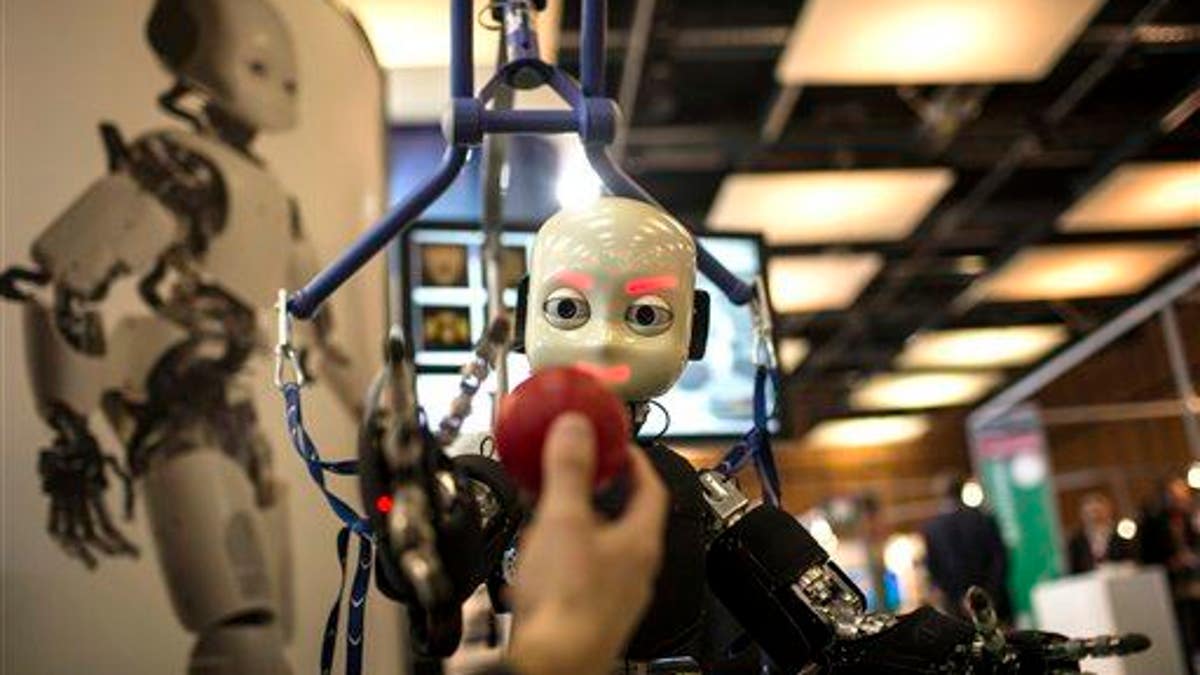
This March 19, 2013, file photo shows the iCub robot trying to catch a ball.The iCub robot is used for research into artificial intelligence. (AP Photo/Laurent Cipriani, File)
A new report looks at the state of the legal profession in 2030, and it doesn't look too pretty as far as employment is concerned, io9 reports.
"It is no longer unrealistic to consider that workplace robots and their AI processing systems could reach the point of general production by 2030," the report, by Jomati Consultants, says.
And those robots could eventually "do the work of a dozen low-level associates. They would not get tired. They would not seek advancement (or) pay rises." A firm's upper echelons would still be populated by actual human lawyers, but the need for associates would shrink dramatically.
As such, legal firms could see a "structural collapse," Legal Futures reports. Those in the top rungs of firms would offer "real understanding and human insight" to clients, the report says, and it suggests that because the top partners of 2030 are currently in their 30s, they're likely to push the AI business model.
All these changes will apply most to "very large, high-value commercial firms," whereas smaller, specialist firms might see less of an impact, the report finds. Artificial intelligence has already had a big effect on law firms, as the New York Times reported in 2011.
It juxtaposed two cases: a 1978 case that required $2.2 million worth of work by lawyers and paralegals who sorted through 6 million documents, compared to a 2011 case in which software was able to pore over 1.5 million documents for less than $100,000.
(When it comes to AI, we may have a lot more than job loss to be worried about, says Stephen Hawking.)
This article originally appeared on Newser: Report: Robots Could Make Most Lawyers Obsolete
More From Newser








































